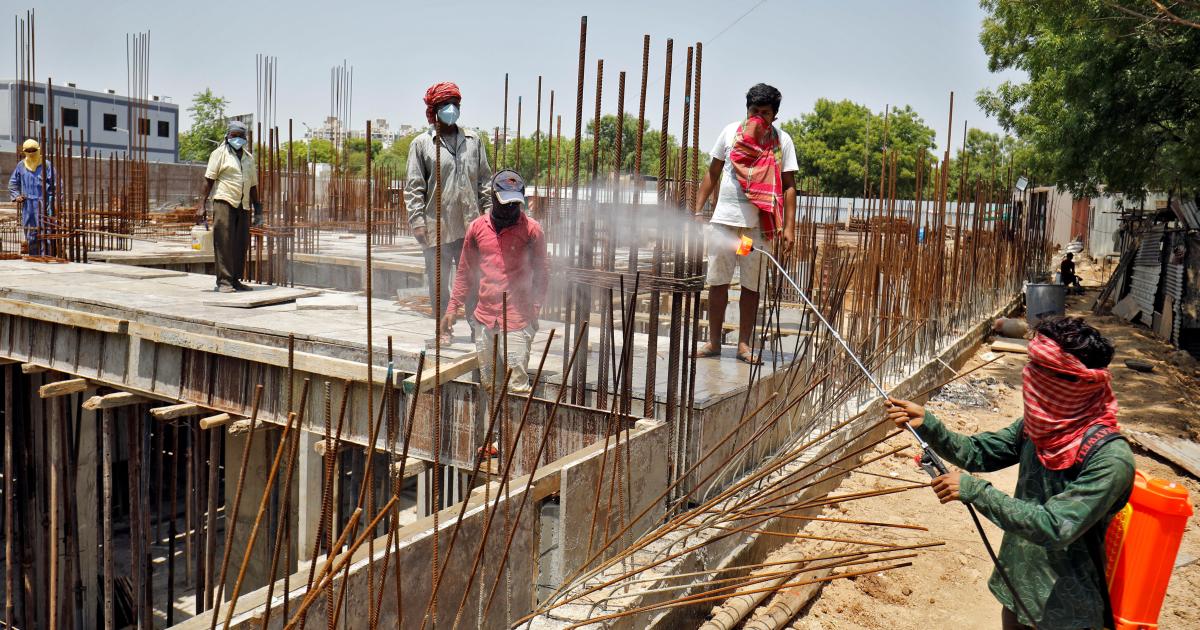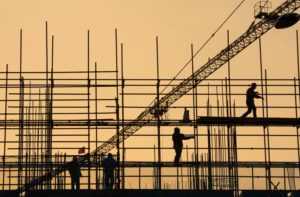https://qz.com/india/1923053/indian-real-estate-jobs-become-more-tech-savvy-post-coronavirus/
When we think about the workforce in the Indian real estate sector, the first image that comes to mind is of labourers on construction sites. But the industry, one of the largest employment generators in India with a workforce of around 7 million, also employs over 300,000 white-collar professionals.
So, in March, when the Covid-19 pandemic broke out in India, the real estate industry not only grappled with labour shortage due to reverse migration but also had to undergo changes relating to office jobs. Among other things, the industry, which has traditionally shied away from work-from-home, realised the need to adapt to remote working. This has led to a distinct shift in the skill set and profiles that real estate companies are now looking to hire.
A recent study by jobs portal Naukri.com stated that there is a 34% increase in hiring in the real estate industry after unlock 1.0 started on June 1. These jobs, however, are different than before. The four major influences that have caused the shift are:
- Greater adoption of technology in business and operations
- Adoption of continuous learning and development programs
- Building more cognitive capabilities
- A new way of working on site
Indian real estate jobs
While technology was earlier being used at sites to improve the overall construction processes, not all employees and workers were completely skilled in all technologies. But now companies want employees to have strong technical capabilities so that they are able to seamlessly manage the organisations’ ecosystem of customers, suppliers, and partners.
As more functions—such as administration, procurement, marketing, training, and recruitment—get digitised, employees must be skilled to manage these new functions. This is where companies are aligning their hiring efforts.
Companies will also have to ramp up their learning and development (L&D) efforts using e-learning methods and train the existing workforce for the new processes. Many companies have already started using personalised micro-learning, gamification, virtual reality, and augmented reality for corporate learning. Companies are hiring more specialised HR managers and L&D experts to help them sail through this change.
Work at the construction sites is also different now.
The new social distancing norms have increased the need to maintain on-site safety. Engineers and project managers have to re-learn what they knew about enterprise resource planning (ERP), building information modelling, and supply chain management, among other things and enable their workers to operate in the new ecosystem.
Real estate job openings
In the last few days, there has been a surge in hiring for the following roles in the Indian real estate industry:
- Officers for labour mobilisation
- Senior managers and managers for mechanical and safety functions
- Manager, engineer, assistant engineer, and junior engineer for construction roles
- Supervisor, foreman, and engineer for quality assurance and quality control
There is also an increase in senior roles in construction, such as assistant general managers and deputy general managers.
Safety has always been a priority for the real estate industry but of late it has new meaning. Companies are hiring specialised profiles for security and safety at mid- and senior-levels.
Moving from on-site to off-site job roles, one of the most crucial departments for real estate players, is marketing. Though there was a surge in digital marketing practices in the last couple of years, 90% of the marketing and sales outreach of this industry is one-on-one. Covid-19 threw this out of the window completely. Now companies want employees who are proficient in digital marketing tools as well as methods and can engage with consumers even if they are remote and yet drive sales. Companies are hiring for roles like data analysts, data scientists, graphic designers, artificial intelligence (AI) specialists, etc. so that their sales outreach is unique and successful.
Overall, employees must be equipped to innovate and adapt to a constantly changing environment. Organisations must adapt swiftly to this massive workplace transformation as well as put systems in place to mitigate the effects of future pandemics. They will have to devise a pandemic contingency plan specifically addressing bottlenecks that occur due to a widespread crisis such as employee health monitoring, absenteeism, remote working, and travel restrictions.
We welcome your comments at ideas.india@qz.com.

















